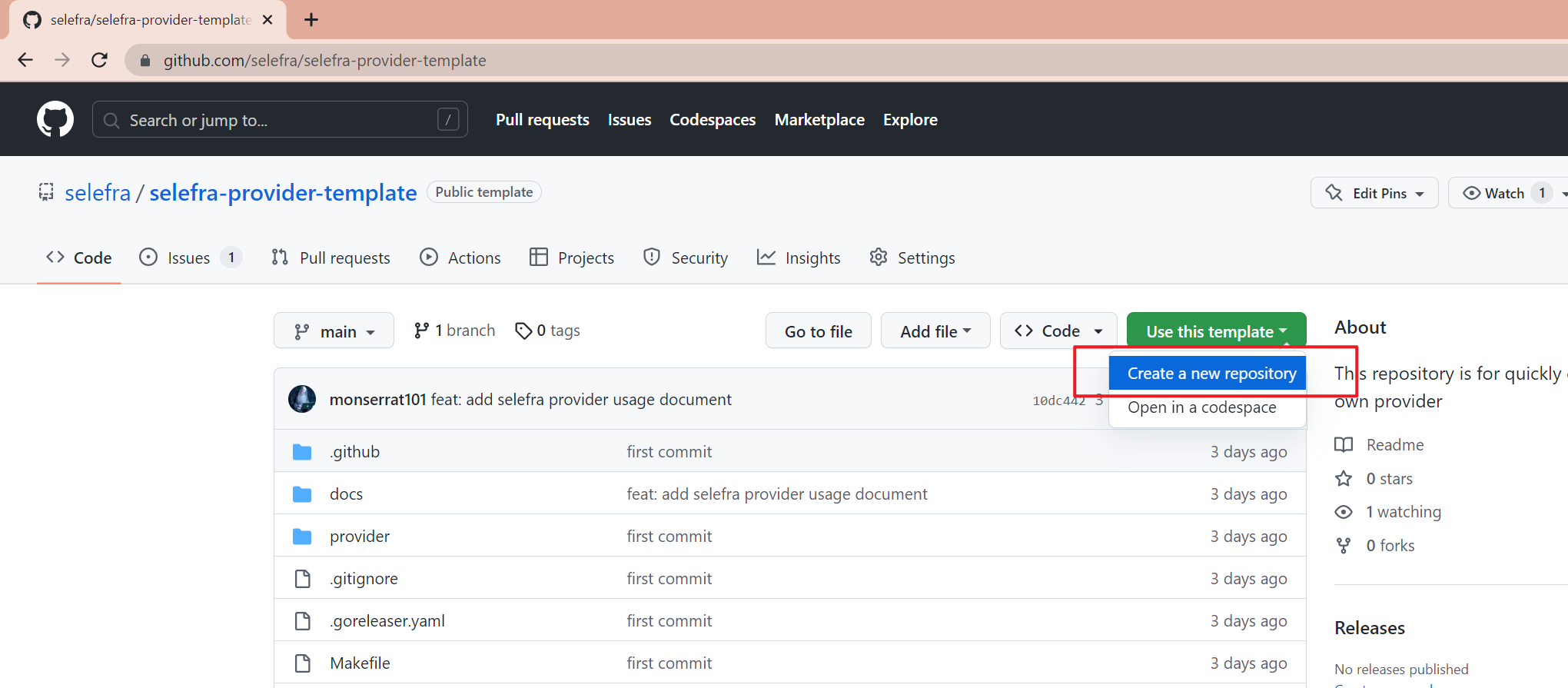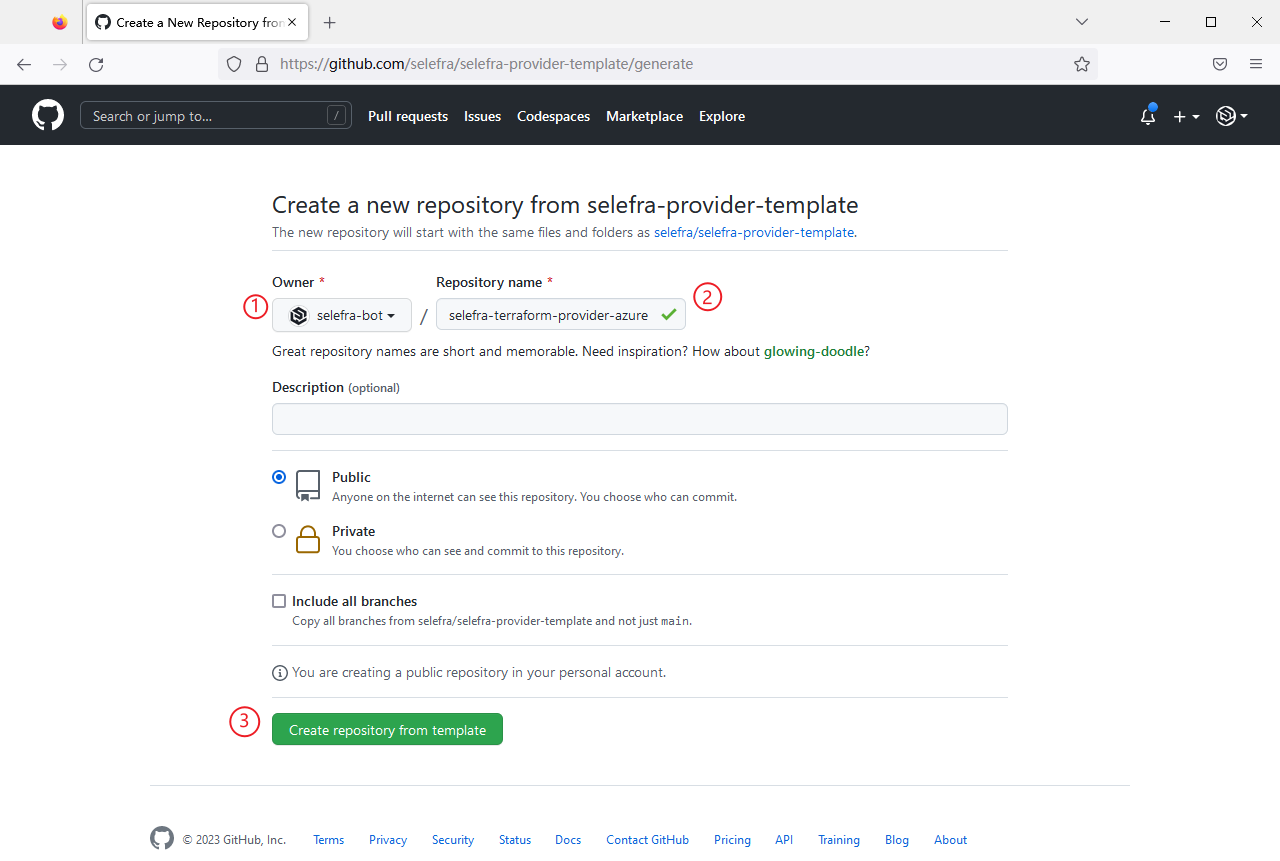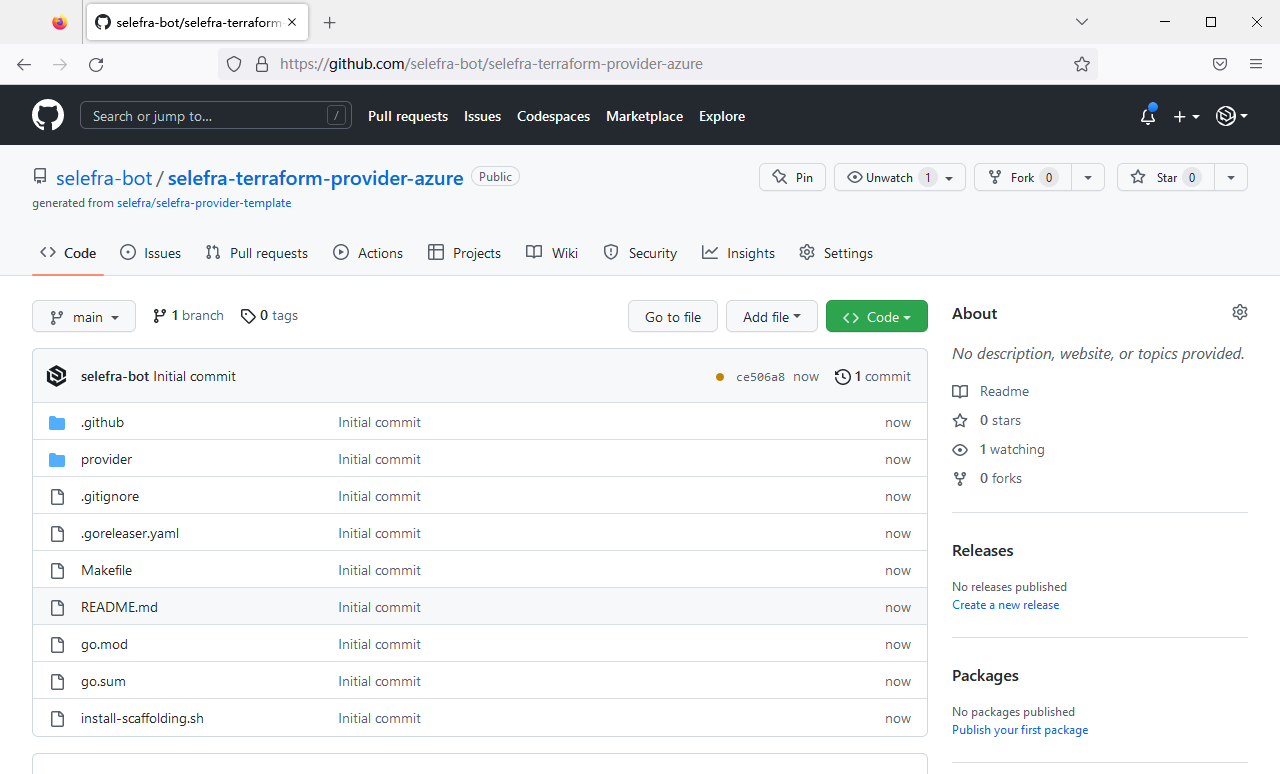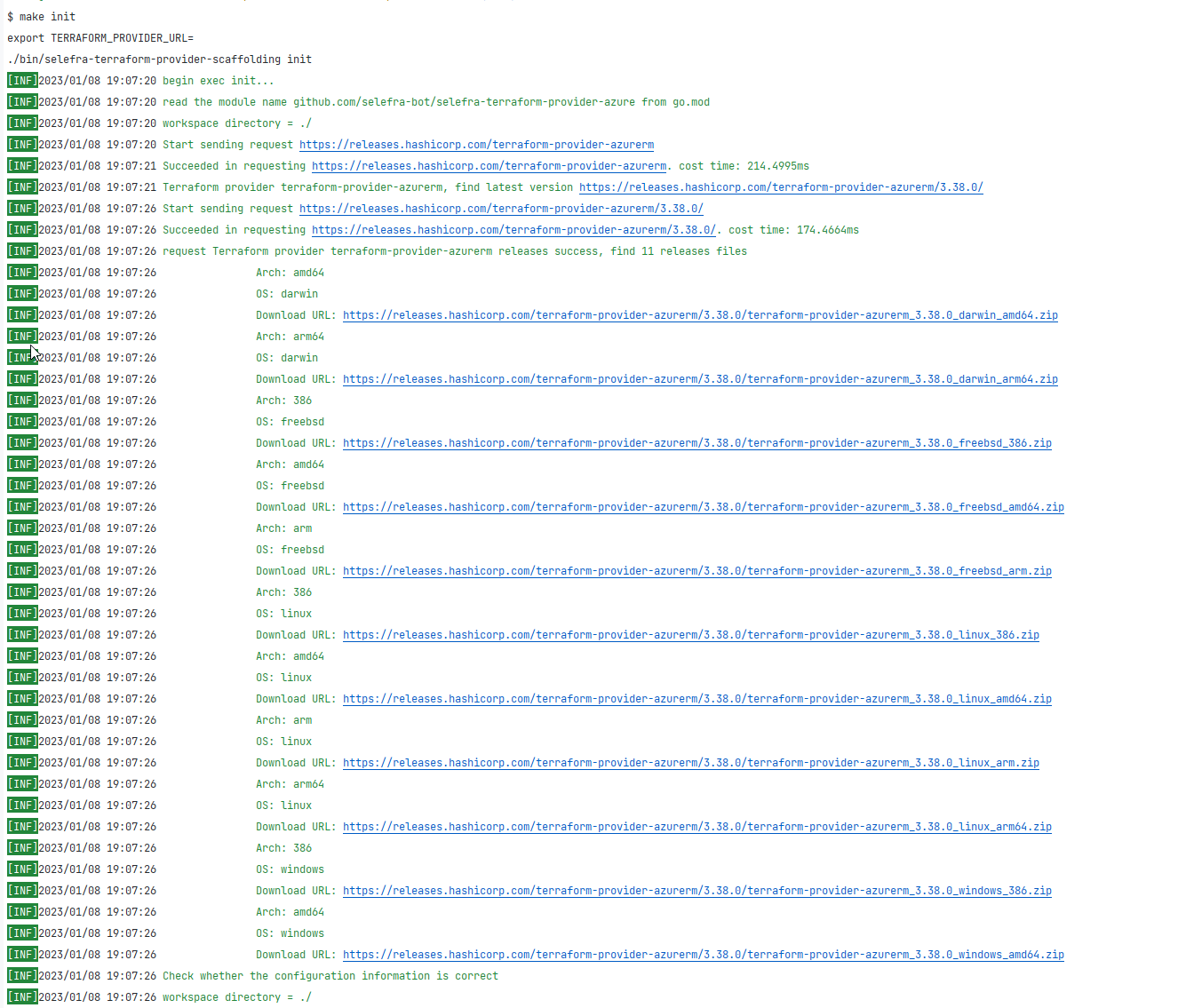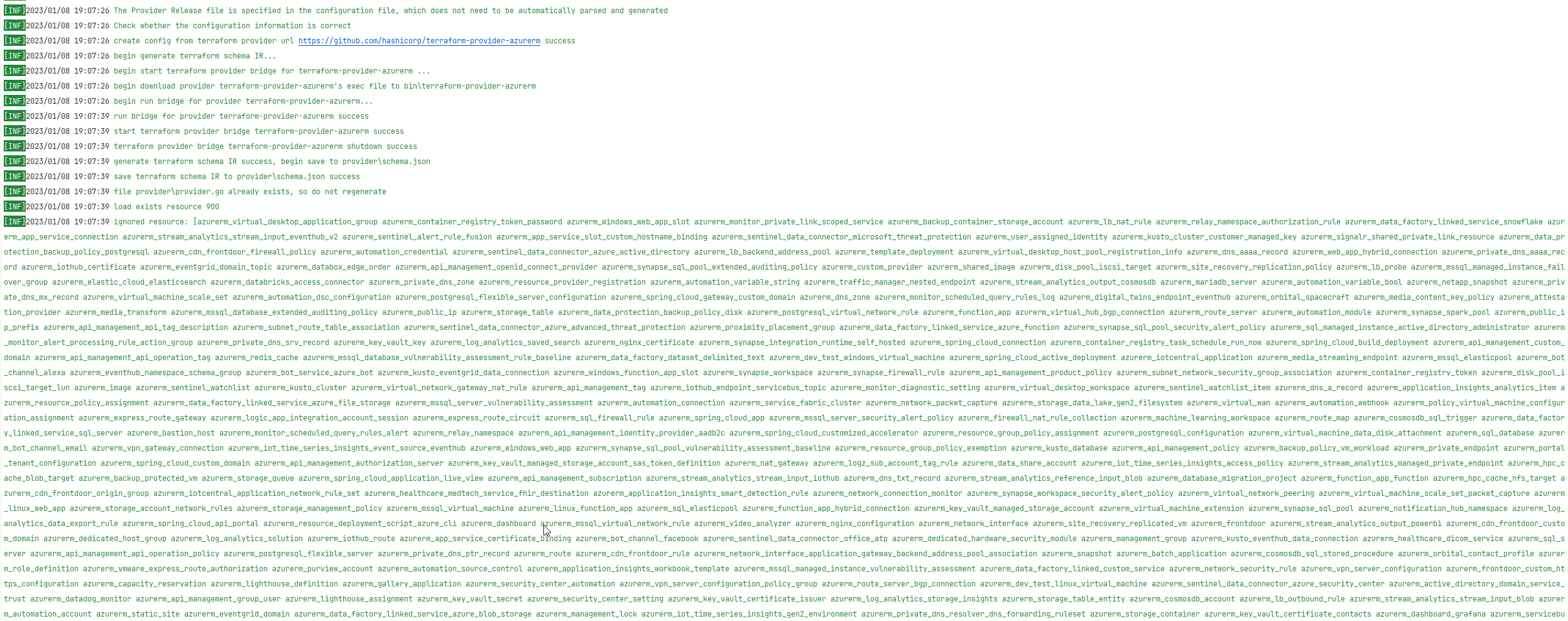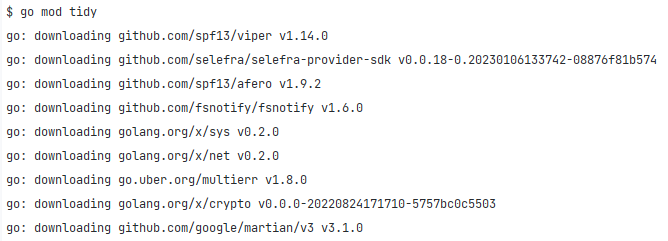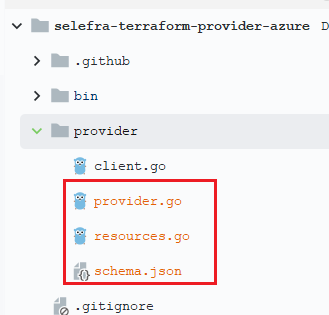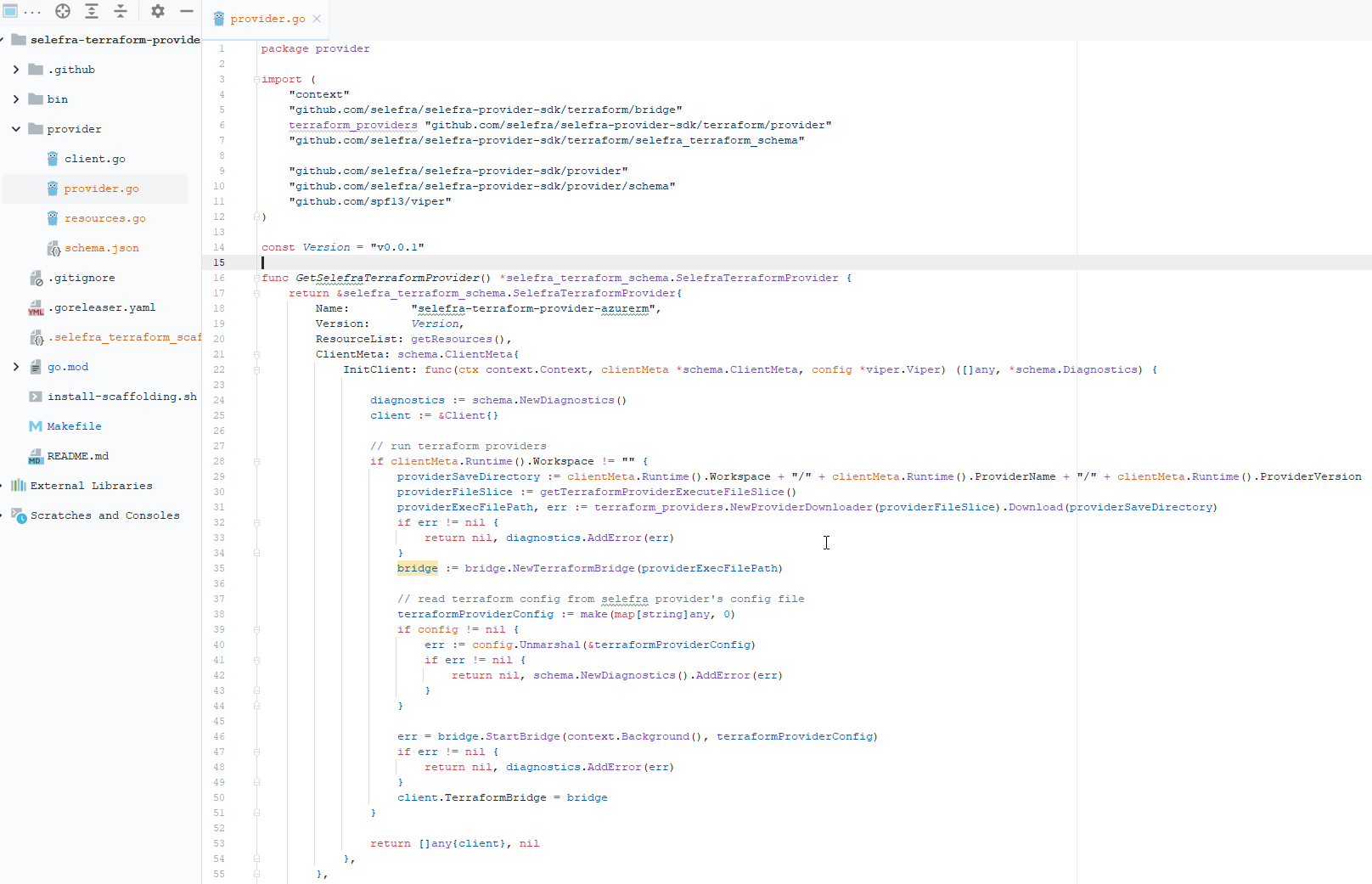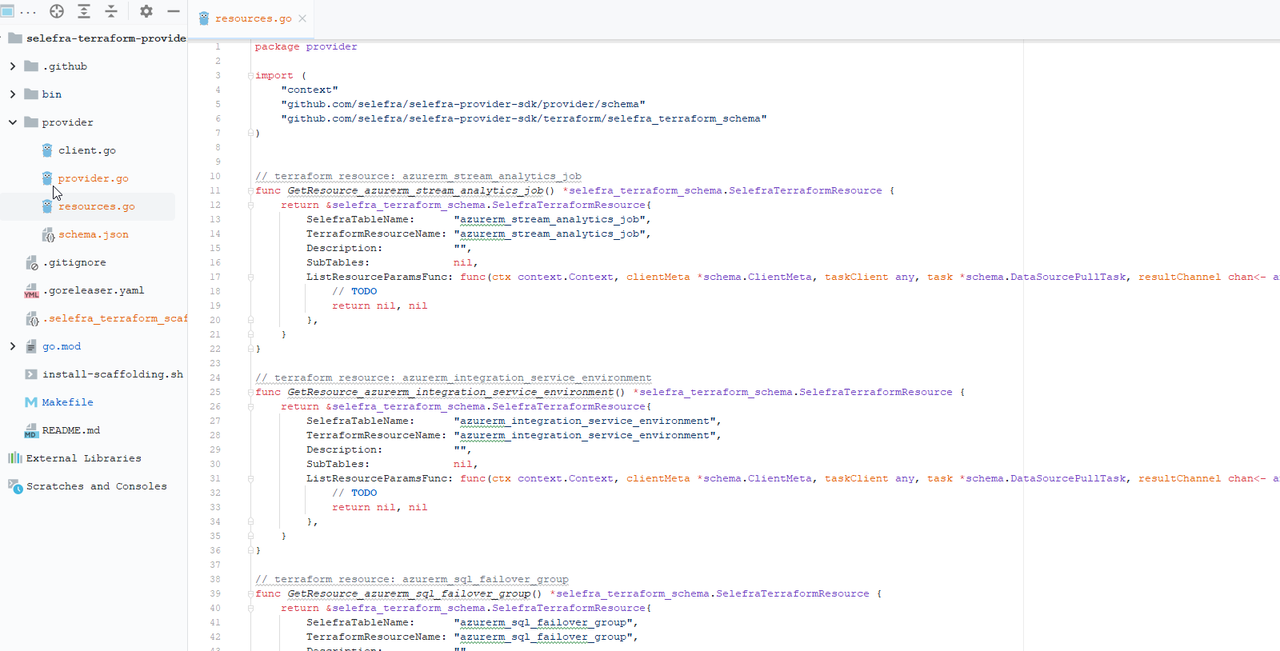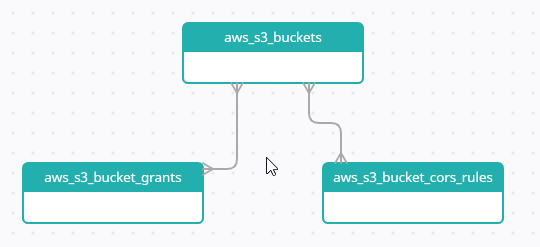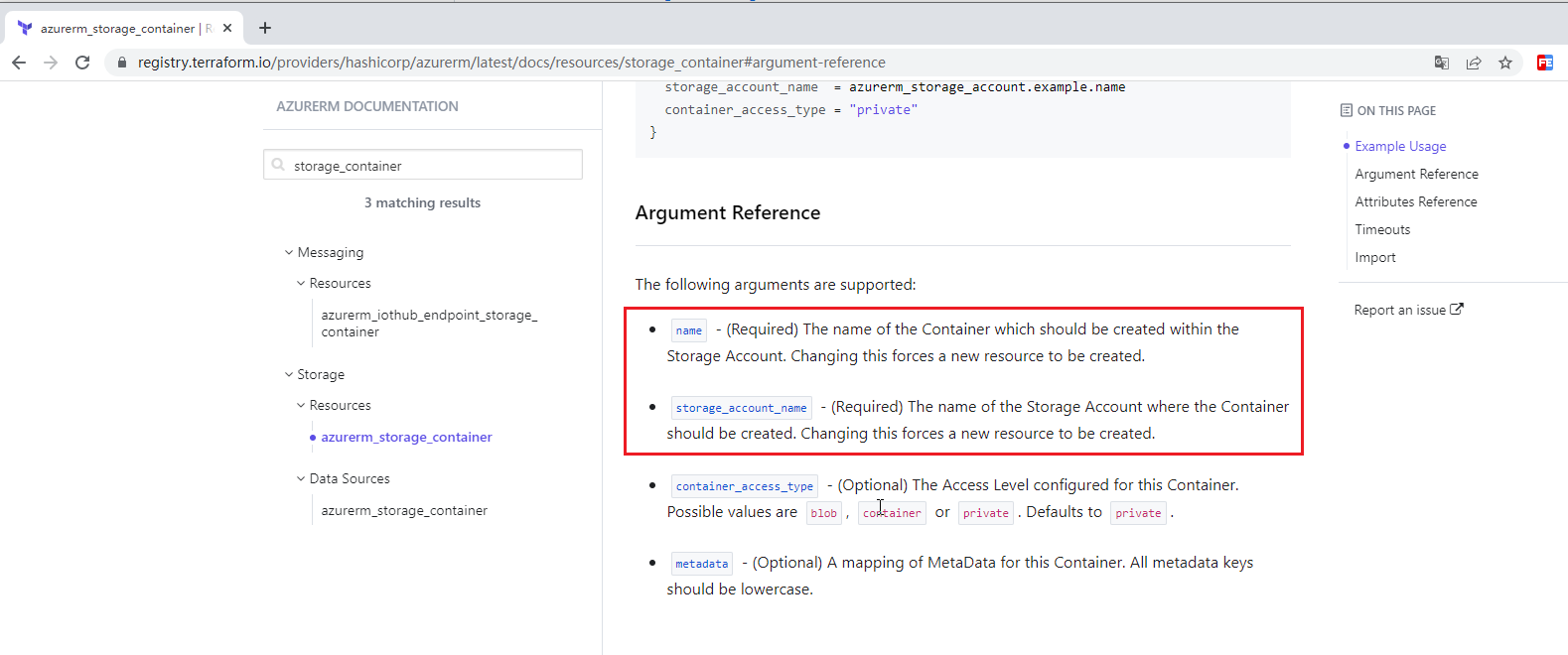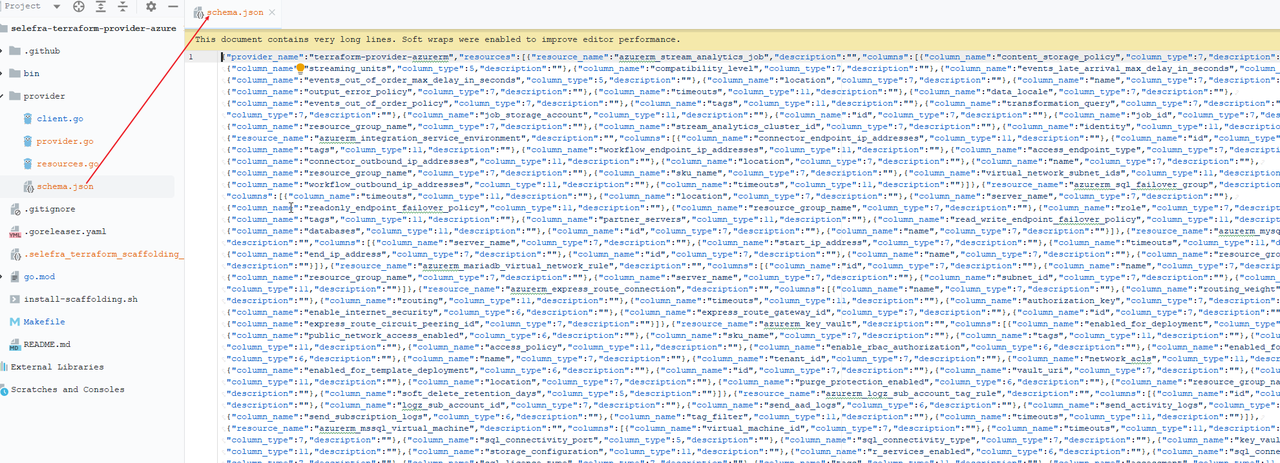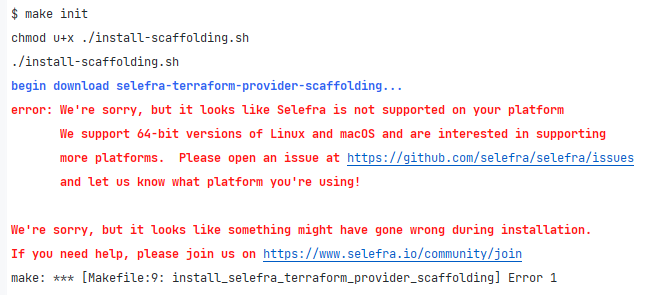- Have a GitHub account and be able to create warehouse hosting code
- Installed git, can clone code from GitHub to localhost disk
- Go SDK version >=1.19, understand the Go language, and can understand the sample code
- Mac or Linux system, able to execute Makefile
- wget has been installed, and files can be downloaded through the wget command
- Understand the basic concepts related to relational databases (databases, tables, etc.), Postgresql installation version >=13
- Have a Microsoft Cloud account, have installed the command line az tool of Microsoft Cloud and successfully logged in and have container resource
The recommended code management method is a Provider and a separate warehouse hosting code. We provide a Provider template warehouse on GitHub: https://github.com/selefra/selefra-provider-template, first create this warehouse as a template Your own Provider repository:
According to your own situation, select the organization or user under which the warehouse will be linked in 1 in the figure below, and enter the name of the warehouse in 2:
The recommended format for a repository name is:
selefra-terraform-provider-${name}
for example:
selefra-terraform-provider-azure
After setting the name, click Create repository from template at 3 places. It takes a few seconds to create the repository. After waiting for a while, it will automatically refresh and jump to the created repository:
Clone the repository locally:
git clone https://github.com/selefra-bot/selefra-terraform-provider-azure.git
Change into the directory of the project you just cloned:
cd selefra-terraform-provider-azure
We provide a scaffolding tool that exposes several commands in the form of Makefile. These commands run through the entire Provider development cycle to improve your development efficiency. The first is the make init command, which is used to initialize your project. , which accepts several parameters. Here we adopt the minimum configuration for the convenience of demonstration. We only need to set an environment variable and tell it the URL of the GitHub repository of the Terraform Provider corresponding to our repository:
export TERRAFORM_PROVIDER_URL=https://github.com/hashicorp/terraform-provider-azurerm
Then execute the initialization command:
make init
Example output:
When you see the green font at the end and exit successfully, it means that the initialization is successful. If there is an unfortunate error, please refer to the FAQ section to contact us for technical support. Then install project-related dependencies:
go mod tidy
Example output:
Let us introduce the two important tasks that you need to pay attention to that are automatically completed during the initialization phase. First, modify the name of the project module in go.mod to be correct. This is automatically inferred based on your GitHub warehouse URL, so you You don't have to modify it manually:
Then there are three more files in the provider directory of the project:
First let's look at the provider.go file:
This file contains some automatically generated Provider-related information, including the Provider name, version, initialization logic, download information of the Release file of the Terraform Provider associated to it, and so on. Then there is the resources.go file, each Resource in Terraform will generate a corresponding GetResource_${ResourceName} method:
Let's take Resource azurerm_storage_container as an example:
// terraform resource: azurerm_storage_container
func GetResource_azurerm_storage_container() *selefra_terraform_schema.SelefraTerraformResource {
return &selefra_terraform_schema.SelefraTerraformResource{
SelefraTableName: "azurerm_storage_container",
TerraformResourceName: "azurerm_storage_container",
Description: "",
SubTables: nil,
ListResourceParamsFunc: func(ctx context.Context, clientMeta *schema.ClientMeta, taskClient any, task *schema.DataSourcePullTask, resultChannel chan<- any) ([]*selefra_terraform_schema.ResourceRequestParam, *schema.Diagnostics) {
// TODO
return nil, nil
},
}
}- TerraformResourceName and SelefraTableName represent the corresponding relationship between Terraform's Resource access and Selefra's table name, just keep the default
- Description, you can write some table description information here, just keep the default
- SubTables do not need to be modified, just keep the default
The concept of sub-tables is only briefly introduced here, because sub-tables are not necessary. This concept will only be involved when the data model of your Provider is more complicated. The tables in Selefra's Provider are tree-shaped Association relationship (if there is no association relationship, it is considered a tree with only the root node). For example, the information of the bucket corresponds to a table aws_s3_buckets, the authorization information of the bucket corresponds to a table aws_s3_bucket_grants, and the CORS rule of the bucket corresponds to a table aws_s3_bucket_cors_rules, tables aws_s3_bucket_grants and aws_s3_bucket_cors_rules will have a logical foreign key bucket_name associated with aws_s3_buckets, and they form a tree relationship:
For more details, please move to our documentation: https://www.selefra.io/docs/introduction/
-
ListResourceParamsFunc is the key to connecting your Terraform Provider to Selefra, and it is also the part that needs to be implemented by your code. The ListResourceParamsFunc function needs to return a slice of ResourceRequestParam type. ResourceRequestParam tells Selefra how to request a Terraform Resource:
// ResourceRequestParam Request parameters for the resource type ResourceRequestParam struct { // ID of resource ID string // The parameters required to request the resource ArgumentMap map[string]any }
For resources that only need an ID to uniquely identify a resource, just set an ID field, such as AWS’s aws_s3_bucket, set the name of the bucket to the ID field and return it, and Selefra can pull back the corresponding bucket information and store it in Postgresql For example, for the azurerm_storage_container of azurerm, you need to set name and storage_account_name, because these two are required parameters:
For this kind of thing, just put it in the ArgumentMap of ResourceRequestParam. It may not be easy to understand. It doesn't matter. The next part will actually write a ListResourceParamsFunc for the concept just introduced. Oh, I almost forgot, schema.json is the stored Terraform Resource Schema information, which is a cache file, unless the Schema of the Terraform Provider to be accessed has changed and needs to be deleted and re-make init, generally ignore it:
Although this step is mainly coding-related work, in order to save time, readers only need to copy and paste the code given by the author.
First of all, we need to add the relevant dependencies of the Microsoft Cloud SDK. For convenience, I directly paste my go.mod here. Readers can just copy and paste it. Note that the first line of module should keep using your own original module name and do not overwrite it. , because this one is different for everyone:
module github.com/selefra-bot/selefra-terraform-provider-azure
go 1.19
require (
github.com/Azure/azure-sdk-for-go v57.0.0+incompatible
github.com/Azure/go-autorest/autorest v0.11.20
github.com/Azure/go-autorest/autorest/azure/auth v0.5.8
github.com/selefra/selefra-provider-sdk v0.0.18-0.20230106133742-08876f81b574
github.com/spf13/viper v1.14.0
)
require (
cloud.google.com/go v0.107.0 // indirect
cloud.google.com/go/compute v1.12.1 // indirect
cloud.google.com/go/compute/metadata v0.2.1 // indirect
cloud.google.com/go/iam v0.7.0 // indirect
cloud.google.com/go/storage v1.28.0 // indirect
github.com/Azure/go-autorest v14.2.0+incompatible // indirect
github.com/Azure/go-autorest/autorest/adal v0.9.15 // indirect
github.com/Azure/go-autorest/autorest/azure/cli v0.4.3 // indirect
github.com/Azure/go-autorest/autorest/date v0.3.0 // indirect
github.com/Azure/go-autorest/autorest/to v0.4.0 // indirect
github.com/Azure/go-autorest/autorest/validation v0.3.1 // indirect
github.com/Azure/go-autorest/logger v0.2.1 // indirect
github.com/Azure/go-autorest/tracing v0.6.0 // indirect
github.com/Masterminds/squirrel v1.5.3 // indirect
github.com/aws/aws-sdk-go v1.44.149 // indirect
github.com/bgentry/go-netrc v0.0.0-20140422174119-9fd32a8b3d3d // indirect
github.com/dimchansky/utfbom v1.1.1 // indirect
github.com/doug-martin/goqu/v9 v9.18.0 // indirect
github.com/emirpasic/gods v1.18.1 // indirect
github.com/fatih/color v1.13.0 // indirect
github.com/fsnotify/fsnotify v1.6.0 // indirect
github.com/golang-jwt/jwt/v4 v4.0.0 // indirect
github.com/golang/glog v1.0.0 // indirect
github.com/golang/groupcache v0.0.0-20210331224755-41bb18bfe9da // indirect
github.com/golang/protobuf v1.5.2 // indirect
github.com/google/go-cmp v0.5.9 // indirect
github.com/google/uuid v1.3.0 // indirect
github.com/googleapis/enterprise-certificate-proxy v0.2.0 // indirect
github.com/googleapis/gax-go/v2 v2.7.0 // indirect
github.com/hashicorp/errwrap v1.1.0 // indirect
github.com/hashicorp/go-cleanhttp v0.5.2 // indirect
github.com/hashicorp/go-cty v1.4.1-0.20200414143053-d3edf31b6320 // indirect
github.com/hashicorp/go-getter v1.6.2 // indirect
github.com/hashicorp/go-hclog v1.3.1 // indirect
github.com/hashicorp/go-multierror v1.1.1 // indirect
github.com/hashicorp/go-plugin v1.4.6 // indirect
github.com/hashicorp/go-safetemp v1.0.0 // indirect
github.com/hashicorp/go-version v1.6.0 // indirect
github.com/hashicorp/hcl v1.0.0 // indirect
github.com/hashicorp/yamux v0.1.1 // indirect
github.com/jackc/chunkreader/v2 v2.0.1 // indirect
github.com/jackc/pgconn v1.13.0 // indirect
github.com/jackc/pgio v1.0.0 // indirect
github.com/jackc/pgpassfile v1.0.0 // indirect
github.com/jackc/pgproto3/v2 v2.3.1 // indirect
github.com/jackc/pgservicefile v0.0.0-20200714003250-2b9c44734f2b // indirect
github.com/jackc/pgtype v1.12.0 // indirect
github.com/jackc/pgx/v4 v4.17.2 // indirect
github.com/jackc/puddle v1.3.0 // indirect
github.com/jmespath/go-jmespath v0.4.0 // indirect
github.com/klauspost/compress v1.15.12 // indirect
github.com/lann/builder v0.0.0-20180802200727-47ae307949d0 // indirect
github.com/lann/ps v0.0.0-20150810152359-62de8c46ede0 // indirect
github.com/magiconair/properties v1.8.6 // indirect
github.com/mattn/go-colorable v0.1.13 // indirect
github.com/mattn/go-isatty v0.0.16 // indirect
github.com/mitchellh/go-homedir v1.1.0 // indirect
github.com/mitchellh/go-testing-interface v1.14.1 // indirect
github.com/mitchellh/mapstructure v1.5.0 // indirect
github.com/natefinch/lumberjack v2.0.0+incompatible // indirect
github.com/oklog/run v1.1.0 // indirect
github.com/pelletier/go-toml v1.9.5 // indirect
github.com/pelletier/go-toml/v2 v2.0.5 // indirect
github.com/pulumi/pulumi-terraform-bridge/v3 v3.31.0 // indirect
github.com/pulumi/pulumi/sdk/v3 v3.42.0 // indirect
github.com/satori/go.uuid v1.2.0 // indirect
github.com/selefra/selefra-utils v0.0.2 // indirect
github.com/songzhibin97/go-ognl v0.0.2 // indirect
github.com/spf13/afero v1.9.2 // indirect
github.com/spf13/cast v1.5.0 // indirect
github.com/spf13/jwalterweatherman v1.1.0 // indirect
github.com/spf13/pflag v1.0.5 // indirect
github.com/subosito/gotenv v1.4.1 // indirect
github.com/ulikunitz/xz v0.5.10 // indirect
github.com/vmihailenco/msgpack v4.0.4+incompatible // indirect
go.opencensus.io v0.24.0 // indirect
go.uber.org/atomic v1.9.0 // indirect
go.uber.org/multierr v1.8.0 // indirect
go.uber.org/zap v1.23.0 // indirect
golang.org/x/crypto v0.0.0-20220824171710-5757bc0c5503 // indirect
golang.org/x/net v0.2.0 // indirect
golang.org/x/oauth2 v0.2.0 // indirect
golang.org/x/sys v0.2.0 // indirect
golang.org/x/text v0.5.0 // indirect
golang.org/x/xerrors v0.0.0-20220907171357-04be3eba64a2 // indirect
google.golang.org/api v0.103.0 // indirect
google.golang.org/appengine v1.6.7 // indirect
google.golang.org/genproto v0.0.0-20221118155620-16455021b5e6 // indirect
google.golang.org/grpc v1.51.0 // indirect
google.golang.org/protobuf v1.28.1 // indirect
gopkg.in/ini.v1 v1.67.0 // indirect
gopkg.in/yaml.v2 v2.4.0 // indirect
gopkg.in/yaml.v3 v3.0.1 // indirect
)
Just copy and replace all the contents of client.go in the provider directory:
package provider
import (
"github.com/Azure/go-autorest/autorest"
"github.com/Azure/go-autorest/autorest/azure/auth"
"github.com/selefra/selefra-provider-sdk/provider/schema"
"github.com/selefra/selefra-provider-sdk/terraform/bridge"
)
import (
"context"
"github.com/Azure/azure-sdk-for-go/services/subscription/mgmt/2020-09-01/subscription"
_ "github.com/Azure/go-autorest/autorest"
)
type Client struct {
TerraformBridge *bridge.TerraformBridge
Authorizer autorest.Authorizer
Subscriptions []string
CurrentUseSubscription string
// TODO You can continue to refine your client
}
func (x Client) CopyWithSubscription(subscriptionId string) *Client {
return &Client{
TerraformBridge: x.TerraformBridge,
Authorizer: x.Authorizer,
Subscriptions: x.Subscriptions,
CurrentUseSubscription: subscriptionId,
}
}
func newClient(clientMeta *schema.ClientMeta) (*Client, error) {
authorizer, subscriptions, err := getSubscriptions(clientMeta)
if err != nil {
ErrorF(clientMeta, "Failed to get subscription information: %s", err.Error())
return nil, err
}
DebugF(clientMeta, "Obtaining subscription information successfully...")
return &Client{
Authorizer: authorizer,
Subscriptions: subscriptions,
}, nil
}
func getSubscriptions(clientMeta *schema.ClientMeta) (autorest.Authorizer, []string, error) {
azureAuth, err := auth.NewAuthorizerFromCLI()
if err != nil {
ErrorF(clientMeta, "Failed to obtain authentication from az cli: %s, trying to obtain authentication information from environment variables...", err.Error())
azureAuth, err = auth.NewAuthorizerFromEnvironment()
}
if err != nil {
ErrorF(clientMeta, "Obtaining auth information finally failed: %s", err.Error())
return nil, nil, err
}
ctx := context.Background()
svc := subscription.NewSubscriptionsClient()
svc.Authorizer = azureAuth
res, err := svc.List(ctx)
if err != nil {
ErrorF(clientMeta, "Failed to list subscriptions: %s", err.Error())
return nil, nil, err
}
DebugF(clientMeta, "The list of subscriptions is successful, start to turn the page...")
subscriptions := make([]string, 0)
for res.NotDone() {
for _, sub := range res.Values() {
switch sub.State {
case subscription.Disabled:
DebugF(clientMeta, "subscription.Disabled, Not fetching from subscription because it is disabled subscription", *sub.SubscriptionID)
case subscription.Deleted:
DebugF(clientMeta, "subscription.Deleted, Not fetching from subscription because it is deleted subscription", *sub.SubscriptionID)
default:
subscriptions = append(subscriptions, *sub.SubscriptionID)
DebugF(clientMeta, "Found an available subscription ID: %s", *sub.SubscriptionID)
}
}
err := res.NextWithContext(ctx)
if err != nil {
ErrorF(clientMeta, "Page turning failed: %s", err.Error())
return nil, nil, err
}
}
DebugF(clientMeta, "Successfully obtained subscription: %s", subscriptions)
return azureAuth, subscriptions, nil
}
func DebugF(clientMeta *schema.ClientMeta, msg string, args ...any) {
if clientMeta != nil {
clientMeta.DebugF(msg, args...)
}
}
func ErrorF(clientMeta *schema.ClientMeta, msg string, args ...any) {
if clientMeta != nil {
clientMeta.ErrorF(msg, args...)
}
}Replace the content of provider.go under the provider path:
package provider
import (
"context"
"github.com/selefra/selefra-provider-sdk/terraform/bridge"
terraform_providers "github.com/selefra/selefra-provider-sdk/terraform/provider"
"github.com/selefra/selefra-provider-sdk/terraform/selefra_terraform_schema"
"github.com/selefra/selefra-provider-sdk/provider"
"github.com/selefra/selefra-provider-sdk/provider/schema"
"github.com/spf13/viper"
)
const Version = "v0.0.1"
func GetSelefraTerraformProvider() *selefra_terraform_schema.SelefraTerraformProvider {
return &selefra_terraform_schema.SelefraTerraformProvider{
Name: "selefra-terraform-provider-azurerm",
Version: Version,
ResourceList: getResources(),
ClientMeta: schema.ClientMeta{
InitClient: func(ctx context.Context, clientMeta *schema.ClientMeta, config *viper.Viper) ([]any, *schema.Diagnostics) {
clientMeta.Debug("Start initializing client...")
diagnostics := schema.NewDiagnostics()
client, err := newClient(clientMeta)
if err != nil {
clientMeta.Debug("Failed to create client...")
return nil, schema.NewDiagnostics().AddError(err)
}
// run terraform providers
if clientMeta.Runtime().Workspace != "" {
providerSaveDirectory := clientMeta.Runtime().Workspace + "/" + clientMeta.Runtime().ProviderName + "/" + clientMeta.Runtime().ProviderVersion
providerFileSlice := getTerraformProviderExecuteFileSlice()
providerExecFilePath, err := terraform_providers.NewProviderDownloader(providerFileSlice).Download(providerSaveDirectory)
if err != nil {
return nil, diagnostics.AddError(err)
}
bridge := bridge.NewTerraformBridge(providerExecFilePath)
// read terraform config from selefra provider's config file
terraformProviderConfig := make(map[string]any, 0)
if config != nil {
err := config.Unmarshal(&terraformProviderConfig)
if err != nil {
return nil, schema.NewDiagnostics().AddError(err)
}
}
err = bridge.StartBridge(context.Background(), terraformProviderConfig)
if err != nil {
return nil, diagnostics.AddError(err)
}
client.TerraformBridge = bridge
}
return []any{client}, nil
},
},
ConfigMeta: provider.ConfigMeta{
GetDefaultConfigTemplate: func(ctx context.Context) string {
// TODO
return ``
},
Validation: func(ctx context.Context, config *viper.Viper) *schema.Diagnostics {
client, err := newClient(nil)
if err != nil {
return schema.NewDiagnostics().AddError(err)
}
if len(client.Subscriptions) == 0 {
return schema.NewDiagnostics().AddErrorMsg("at least one subscription!")
}
return nil
},
},
TransformerMeta: schema.TransformerMeta{
DefaultColumnValueConvertorBlackList: []string{},
DataSourcePullResultAutoExpand: true,
},
ErrorsHandlerMeta: schema.ErrorsHandlerMeta{
IgnoredErrors: []schema.IgnoredError{schema.IgnoredErrorOnSaveResult},
},
}
}
func getTerraformProviderExecuteFileSlice() []*terraform_providers.TerraformProviderFile {
providerFileSlice := make([]*terraform_providers.TerraformProviderFile, 0)
providerFileSlice = append(providerFileSlice, &terraform_providers.TerraformProviderFile{
ProviderName: "",
ProviderVersion: "3.38.0",
DownloadUrl: "https://releases.hashicorp.com/terraform-provider-azurerm/3.38.0/terraform-provider-azurerm_3.38.0_darwin_amd64.zip",
Arch: "amd64",
OS: "darwin",
})
providerFileSlice = append(providerFileSlice, &terraform_providers.TerraformProviderFile{
ProviderName: "",
ProviderVersion: "3.38.0",
DownloadUrl: "https://releases.hashicorp.com/terraform-provider-azurerm/3.38.0/terraform-provider-azurerm_3.38.0_darwin_arm64.zip",
Arch: "arm64",
OS: "darwin",
})
providerFileSlice = append(providerFileSlice, &terraform_providers.TerraformProviderFile{
ProviderName: "",
ProviderVersion: "3.38.0",
DownloadUrl: "https://releases.hashicorp.com/terraform-provider-azurerm/3.38.0/terraform-provider-azurerm_3.38.0_freebsd_386.zip",
Arch: "386",
OS: "freebsd",
})
providerFileSlice = append(providerFileSlice, &terraform_providers.TerraformProviderFile{
ProviderName: "",
ProviderVersion: "3.38.0",
DownloadUrl: "https://releases.hashicorp.com/terraform-provider-azurerm/3.38.0/terraform-provider-azurerm_3.38.0_freebsd_amd64.zip",
Arch: "amd64",
OS: "freebsd",
})
providerFileSlice = append(providerFileSlice, &terraform_providers.TerraformProviderFile{
ProviderName: "",
ProviderVersion: "3.38.0",
DownloadUrl: "https://releases.hashicorp.com/terraform-provider-azurerm/3.38.0/terraform-provider-azurerm_3.38.0_freebsd_arm.zip",
Arch: "arm",
OS: "freebsd",
})
providerFileSlice = append(providerFileSlice, &terraform_providers.TerraformProviderFile{
ProviderName: "",
ProviderVersion: "3.38.0",
DownloadUrl: "https://releases.hashicorp.com/terraform-provider-azurerm/3.38.0/terraform-provider-azurerm_3.38.0_linux_386.zip",
Arch: "386",
OS: "linux",
})
providerFileSlice = append(providerFileSlice, &terraform_providers.TerraformProviderFile{
ProviderName: "",
ProviderVersion: "3.38.0",
DownloadUrl: "https://releases.hashicorp.com/terraform-provider-azurerm/3.38.0/terraform-provider-azurerm_3.38.0_linux_amd64.zip",
Arch: "amd64",
OS: "linux",
})
providerFileSlice = append(providerFileSlice, &terraform_providers.TerraformProviderFile{
ProviderName: "",
ProviderVersion: "3.38.0",
DownloadUrl: "https://releases.hashicorp.com/terraform-provider-azurerm/3.38.0/terraform-provider-azurerm_3.38.0_linux_arm.zip",
Arch: "arm",
OS: "linux",
})
providerFileSlice = append(providerFileSlice, &terraform_providers.TerraformProviderFile{
ProviderName: "",
ProviderVersion: "3.38.0",
DownloadUrl: "https://releases.hashicorp.com/terraform-provider-azurerm/3.38.0/terraform-provider-azurerm_3.38.0_linux_arm64.zip",
Arch: "arm64",
OS: "linux",
})
providerFileSlice = append(providerFileSlice, &terraform_providers.TerraformProviderFile{
ProviderName: "",
ProviderVersion: "3.38.0",
DownloadUrl: "https://releases.hashicorp.com/terraform-provider-azurerm/3.38.0/terraform-provider-azurerm_3.38.0_windows_386.zip",
Arch: "386",
OS: "windows",
})
providerFileSlice = append(providerFileSlice, &terraform_providers.TerraformProviderFile{
ProviderName: "",
ProviderVersion: "3.38.0",
DownloadUrl: "https://releases.hashicorp.com/terraform-provider-azurerm/3.38.0/terraform-provider-azurerm_3.38.0_windows_amd64.zip",
Arch: "amd64",
OS: "windows",
})
return providerFileSlice
}
func getResources() []*selefra_terraform_schema.SelefraTerraformResource {
return []*selefra_terraform_schema.SelefraTerraformResource{
// GetResource_example(),
}
}Open resources.go in the provider directory, and import related packages at the beginning of the file:
import (
"context"
"fmt"
"github.com/Azure/azure-sdk-for-go/services/storage/mgmt/2021-01-01/storage"
"github.com/selefra/selefra-provider-sdk/provider/schema"
"github.com/selefra/selefra-provider-sdk/terraform/selefra_terraform_schema"
"regexp"
"strings"
)Then replace the implementation of azurerm_storage_container:
// ------------------------------------------------- --------------------------------------------------------------------
// terraform resource: azurerm_storage_container
func GetResource_azurerm_storage_container() *selefra_terraform_schema.SelefraTerraformResource {
return &selefra_terraform_schema.SelefraTerraformResource{
SelefraTableName: "azurerm_storage_container",
TerraformResourceName: "azurerm_storage_container",
Description: "",
SubTables: nil,
ExpandClientTask: func(ctx context.Context, clientMeta *schema.ClientMeta, client any, task *schema.DataSourcePullTask) []*schema.ClientTaskContext {
taskClient := client.(*Client)
clientTaskContextSlice := make([]*schema.ClientTaskContext, 0)
for _, sub := range client.(*Client).Subscriptions {
clientTaskContextSlice = append(clientTaskContextSlice, &schema.ClientTaskContext{
Task: task,
Client: taskClient.CopyWithSubscription(sub),
})
}
return clientTaskContextSlice
},
ListResourceParamsFunc: func(ctx context.Context, clientMeta *schema.ClientMeta, taskClient any, task *schema.DataSourcePullTask, resultChannel chan<- any) ([]*selefra_terraform_schema.ResourceRequestParam, *schema.Diagnostics) {
client := taskClient.(*Client)
// step 1. collect all accounts
accountSlice := make([]storage.Account, 0)
accountClient := storage.NewAccountsClient(client.CurrentUseSubscription)
accountClient.Authorizer = client.Authorizer
accountListResponse, err := accountClient.List(ctx)
if err != nil {
return nil, schema.NewDiagnosticsErrorPullTable(task.Table, err)
}
for accountListResponse.NotDone() {
accountSlice = append(accountSlice, accountListResponse.Values()...)
if err := accountListResponse.NextWithContext(ctx); err != nil {
return nil, schema.NewDiagnosticsErrorPullTable(task.Table, err)
}
}
// step 2. collect contains id
resourceRequestParamSlice := make([]*selefra_terraform_schema.ResourceRequestParam, 0)
for _, account := range accountSlice {
if !isBlobSupported(&account) {
continue
}
if account.ID == nil {
continue
}
resource, err := ParseResourceID(*account.ID)
containersClient := storage.NewBlobContainersClient(client.CurrentUseSubscription)
containersClient.Authorizer = client.Authorizer
response, err := containersClient.List(ctx, resource.ResourceGroup, *account.Name, "", "", "")
if err != nil {
continue
}
for response.NotDone() {
for _, item := range response.Values() {
if item.ID == nil {
continue
}
resourceID := fmt.Sprintf("https://%s.blob.core.windows.net/%s", *account.Name, *item.Name)
paramMap := make(map[string]any, 0)
paramMap["name"] = *item.Name
paramMap["storage_account_name"] = *account.Name
resourceRequestParamSlice = append(resourceRequestParamSlice, &selefra_terraform_schema.ResourceRequestParam{
ID: resourceID,
ArgumentMap: paramMap,
})
}
if err := response.NextWithContext(ctx); err != nil {
return nil, schema.NewDiagnosticsErrorPullTable(task.Table, err)
}
}
}
return resourceRequestParamSlice, nil
},
}
}
type ResourceDetails struct {
Subscription string
ResourceGroup string
Provider string
ResourceType string
ResourceName string
}
const resourceIDPatternText = `(?i)subscriptions/(.+)/resourceGroups/(.+)/providers/(.+?)/(.+?)/(.+)`
var resourceIDPattern = regexp.MustCompile(resourceIDPatternText)
func ParseResourceID(resourceID string) (ResourceDetails, error) {
match := resourceIDPattern.FindStringSubmatch(resourceID)
if len(match) == 0 {
return ResourceDetails{}, fmt.Errorf("parsing failed for %s. Invalid resource Id format", resourceID)
}
v := strings.Split(match[5], "/")
resourceName := v[len(v)-1]
result := ResourceDetails{
Subscription: match[1],
ResourceGroup: match[2],
Provider: match[3],
ResourceType: match[4],
ResourceName: resourceName,
}
return result, nil
}
func isBlobSupported(account *storage.Account) bool {
return (account.Kind == storage.Storage) || (account.Kind == storage.StorageV2) ||
(account.Kind == storage.BlockBlobStorage) || (account.Kind == storage.BlobStorage)
}
// ------------------------------------------------- --------------------------------------------------------------------Note: To run the code, ensure that Microsoft Cloud's command-line tool az is installed and there are credentials for successful login locally, otherwise Terraform's Provider will fail to start.
The unit test will execute the data pull process, but the pulled data needs to be saved in the postgresql database, and the database connection is configured through the environment variable SELEFRA_DATABASE_DSN. As an example, please modify the relevant parameters according to your own configuration: export SELEFRA_DATABASE_DSN='host=127.0.0.1 user=postgres password=postgres port=5432 dbname=postgres sslmode=disable'
Then set the name of the resource to be tested, if there are more than one, use English commas to separate:
export SELEFRA_TEST_TABLES=azurerm_storage_container
Then execute the test:
make test
Wait for a while for the test case to finish running, then open the table, and find that the data has been pulled back. The author's test account has only one piece of data, because only one Container was created:
- You can join our slack for feedback questions: https://www.selefra.io/community/join
- You can submit issues feedback under our main warehouse, it is recommended to communicate in English: https://github.com/selefra/selefra/issues
- You can contact your account manager for a more real-time response
2. What should I do if the message "Selefra is not supported on your platform" is displayed? Is it available for Windows users?
If you are a Windows user, you may see the following error when executing make init:
Currently there is no support plan for Windows users, if you are a Windows system and want to use our tools, please contact us to let us know that there is a need for Windows support.
If the following error is displayed in make test, please confirm that your Microsoft cloud login credentials are correct and the network is unblocked. The following example is an exception thrown when an invalid proxy is configured:
$ make test
export TERRAFORM_PROVIDER_URL=
./bin/selefra-terraform-provider-scaffolding generate
[INF]2023/01/09 12:17:30 begin run generate...
[INF]2023/01/09 12:17:30 begin read or generate terraform schema IR...
[INF]2023/01/09 12:17:30 read terraform schema IR error success
[ERR]2023/01/09 12:17:30 remove directory resources failed: remove resources\selefra-terraform-provider-azurerm\v0.0.1\3.38.0\terraform-provider-azurerm_v3.38.0_x5.exe: Access is denied.
[INF]2023/01/09 12:17:30 create directory resources success
[INF]2023/01/09 12:17:30 begin ast parse go file provider\client.go...
[INF]2023/01/09 12:17:30 copy file provider\client.go to resources\client.go success
[INF]2023/01/09 12:17:30 begin ast parse go file provider\provider.go...
[INF]2023/01/09 12:17:30 copy file provider\provider.go to resources\provider.go success
[INF]2023/01/09 12:17:30 begin ast parse go file provider\resources.go...
[INF]2023/01/09 12:17:30 copy file provider\resources.go to resources\resources.go success
[INF]2023/01/09 12:17:30 copy file provider\schema.json to resources\schema.json success
[INF]2023/01/09 12:17:30 write file resources\selefra_schema.go success
[INF]2023/01/09 12:17:30 write file resources\selefra_provider.go success
[INF]2023/01/09 12:17:30 write file resources\selefra_provider_test.go success
[INF]2023/01/09 12:17:30 run generate done
go mod tidy
export SELEFRA_TEST_TABLES=
go test resources/*.go
--- FAIL: Test_Provider (23.13s)
panic: [ error ] 1 error occurred:
* building account: getting authenticated object ID: parsing json result from the Azure CLI: waiting for the Azure CLI: exit status 1: ERROR: The command failed with an unexpected error. Here is the traceback:
ERROR: HTTPSConnectionPool(host='graph.microsoft.com', port=443): Max retries exceeded with url: /v1.0/me (Caused by ProxyError('Cannot connect to proxy.', RemoteDisconnected('Remote end closed connection without response')))
Traceback (most recent call last):
File "D:\a\_work\1\s\build_scripts\windows\artifacts\cli\Lib\site-packages\urllib3/connectionpool.py", line 699, in urlopen
File "D:\a\_work\1\s\build_scripts\windows\artifacts\cli\Lib\site-packages\urllib3/connectionpool.py", line 445, in _make_request
File "<string>", line 3, in raise_from
File "D:\a\_work\1\s\build_scripts\windows\artifacts\cli\Lib\site-packages\urllib3/connectionpool.py", line 440, in _make_request
File "http\client.py", line 1374, in getresponse
File "http\client.py", line 318, in begin
File "http\client.py", line 287, in _read_status
http.client.RemoteDisconnected: Remote end closed connection without response
During handling of the above exception, another exception occurred:
Traceback (most recent call last):
File "D:\a\_work\1\s\build_scripts\windows\artifacts\cli\Lib\site-packages\requests/adapters.py", line 439, in send
File "D:\a\_work\1\s\build_scripts\windows\artifacts\cli\Lib\site-packages\urllib3/connectionpool.py", line 755, in urlopen
File "D:\a\_work\1\s\build_scripts\windows\artifacts\cli\Lib\site-packages\urllib3/util/retry.py", line 574, in increment
urllib3.exceptions.MaxRetryError: HTTPSConnectionPool(host='graph.microsoft.com', port=443): Max retries exceeded with url: /v1.0/me (Caused by ProxyError('Cannot connect to proxy.', RemoteDisconnected('Remote end closed connection without response')))
During handling of the above exception, another exception occurred:
If the following error occurs, it means that the Postgresql database you specified cannot be connected. Please check whether the SELEFRA_DATABASE_DSN environment variable you configured is correct and whether the database instance is started, etc. For details, please refer to the thrown error message:
$ make test
export TERRAFORM_PROVIDER_URL=
./bin/selefra-terraform-provider-scaffolding generate
[INF]2023/01/09 13:29:49 begin run generate...
[INF]2023/01/09 13:29:49 begin read or generate terraform schema IR...
[INF]2023/01/09 13:29:49 read terraform schema IR error success
[INF]2023/01/09 13:29:49 remove directory resources successfully
[INF]2023/01/09 13:29:49 create directory resources success
[INF]2023/01/09 13:29:49 begin ast parse go file provider\client.go...
[INF]2023/01/09 13:29:49 copy file provider\client.go to resources\client.go success
[INF]2023/01/09 13:29:49 begin ast parse go file provider\provider.go...
[INF]2023/01/09 13:29:49 copy file provider\provider.go to resources\provider.go success
[INF]2023/01/09 13:29:49 begin ast parse go file provider\resources.go...
[INF]2023/01/09 13:29:49 copy file provider\resources.go to resources\resources.go success
[INF]2023/01/09 13:29:49 copy file provider\schema.json to resources\schema.json success
[INF]2023/01/09 13:29:49 write file resources\selefra_schema.go success
[INF]2023/01/09 13:29:49 write file resources\selefra_provider.go success
[INF]2023/01/09 13:29:49 write file resources\selefra_provider_test.go success
[INF]2023/01/09 13:29:49 run generate done
go mod tidy
export SELEFRA_TEST_TABLES=
go test resources/*.go
--- FAIL: Test_Provider (22.04s)
panic: [ error ] PostgresqlStorage connect server error: failed to connect to `host=127.0.0.1 user=postgres database=test`: dial error (dial tcp 127.0.0.1:25432: connectex: No connection could be made because the target machine actively refused it.) [recovered]
panic: [ error ] PostgresqlStorage connect server error: failed to connect to `host=127.0.0.1 user=postgres database=test`: dial error (dial tcp 127.0.0.1:25432: connectex: No connection could be made because the target machine actively refused it.)
goroutine 50 [running]:
testing.tRunner.func1.2({0x18048c0, 0xc001211200})
C:/Program Files/Go/src/testing/testing.go:1396 +0x24e
testing.tRunner.func1()
C:/Program Files/Go/src/testing/testing.go:1399 +0x39f
panic({0x18048c0, 0xc001211200})
C:/Program Files/Go/src/runtime/panic.go:884 +0x212
github.com/selefra/selefra-provider-sdk/test_helper.RunProviderPullTables(0x0?, {0x1a0bcba, 0x9}, {0x1a044b4, 0x2}, {0xc0000ba640, 0x1, 0x1})
C:/Users/5950X/go/pkg/mod/github.com/selefra/selefra-provider-sdk@v0.0.18-0.20230106133742-08876f81b574/test_helper/test_helper.go:35 +0x36b
command-line-arguments.Test_Provider(0x0?)
D:/workspace/test/selefra-provider-az/resources/selefra_provider_test.go:13 +0x74
testing.tRunner(0xc0006844e0, 0x1a9e558)
C:/Program Files/Go/src/testing/testing.go:1446 +0x10b
created by testing.(*T).Run
C:/Program Files/Go/src/testing/testing.go:1493 +0x35f
FAIL command-line-arguments 22.506s
FAIL
make: *** [Makefile:15: test] Error 1
